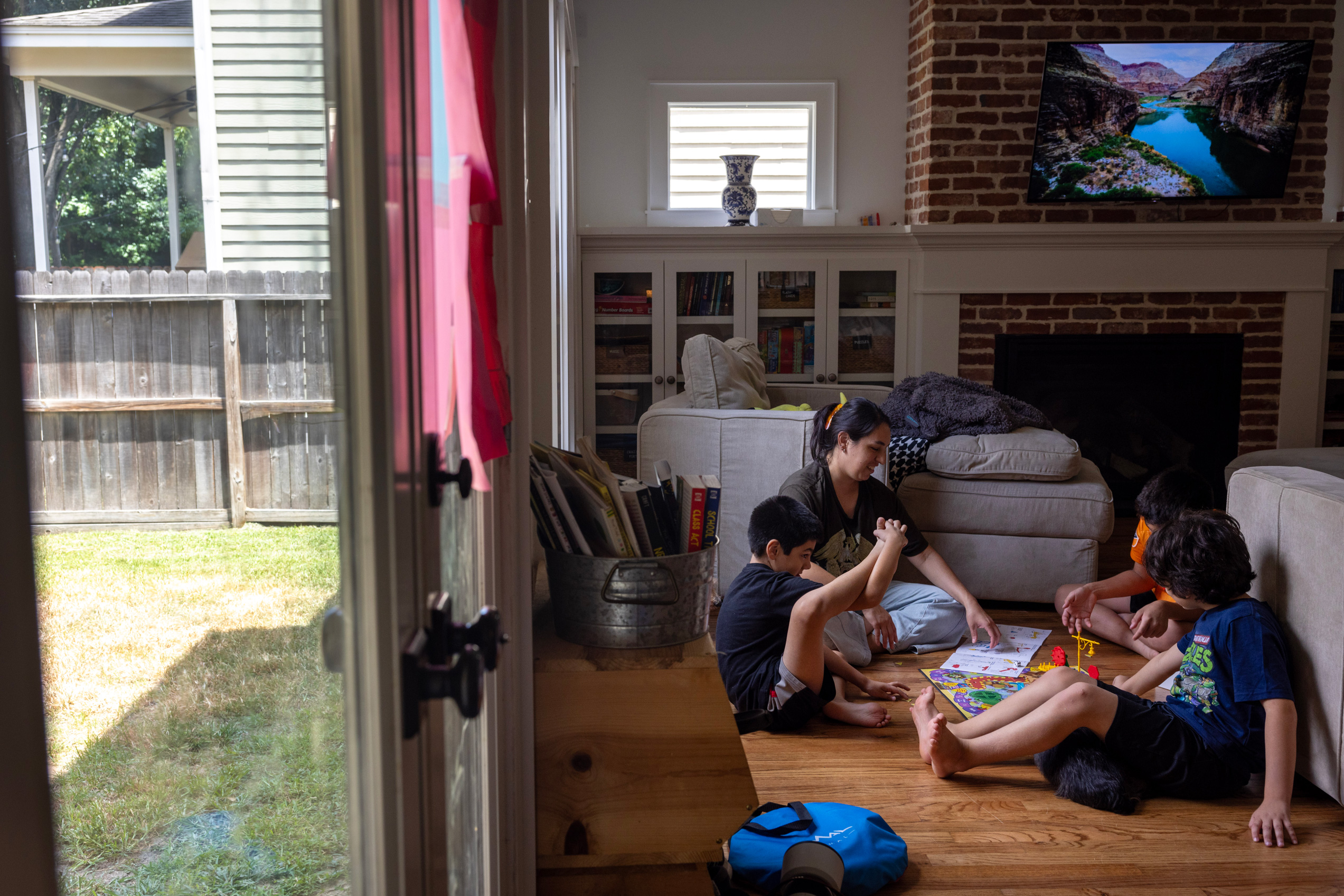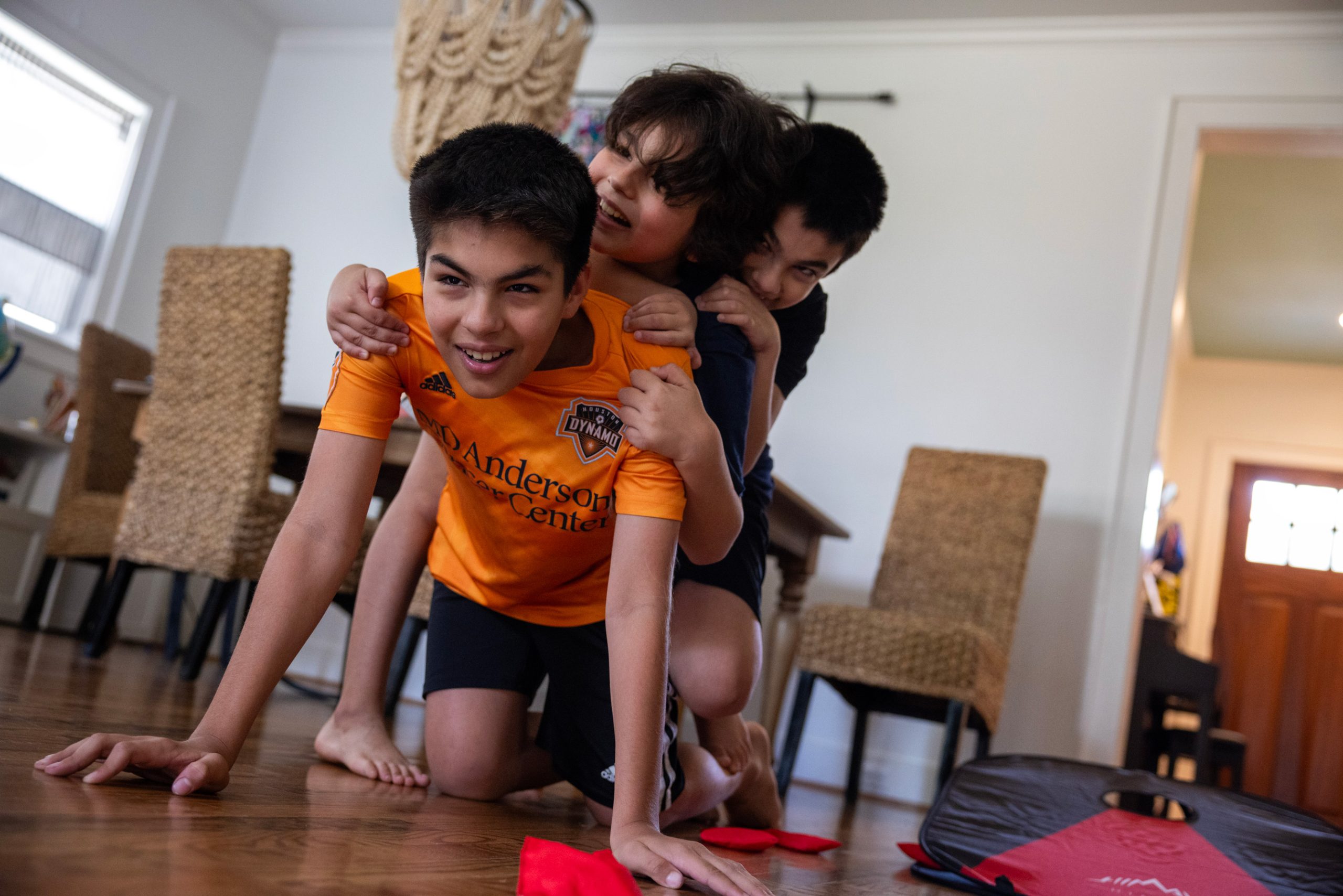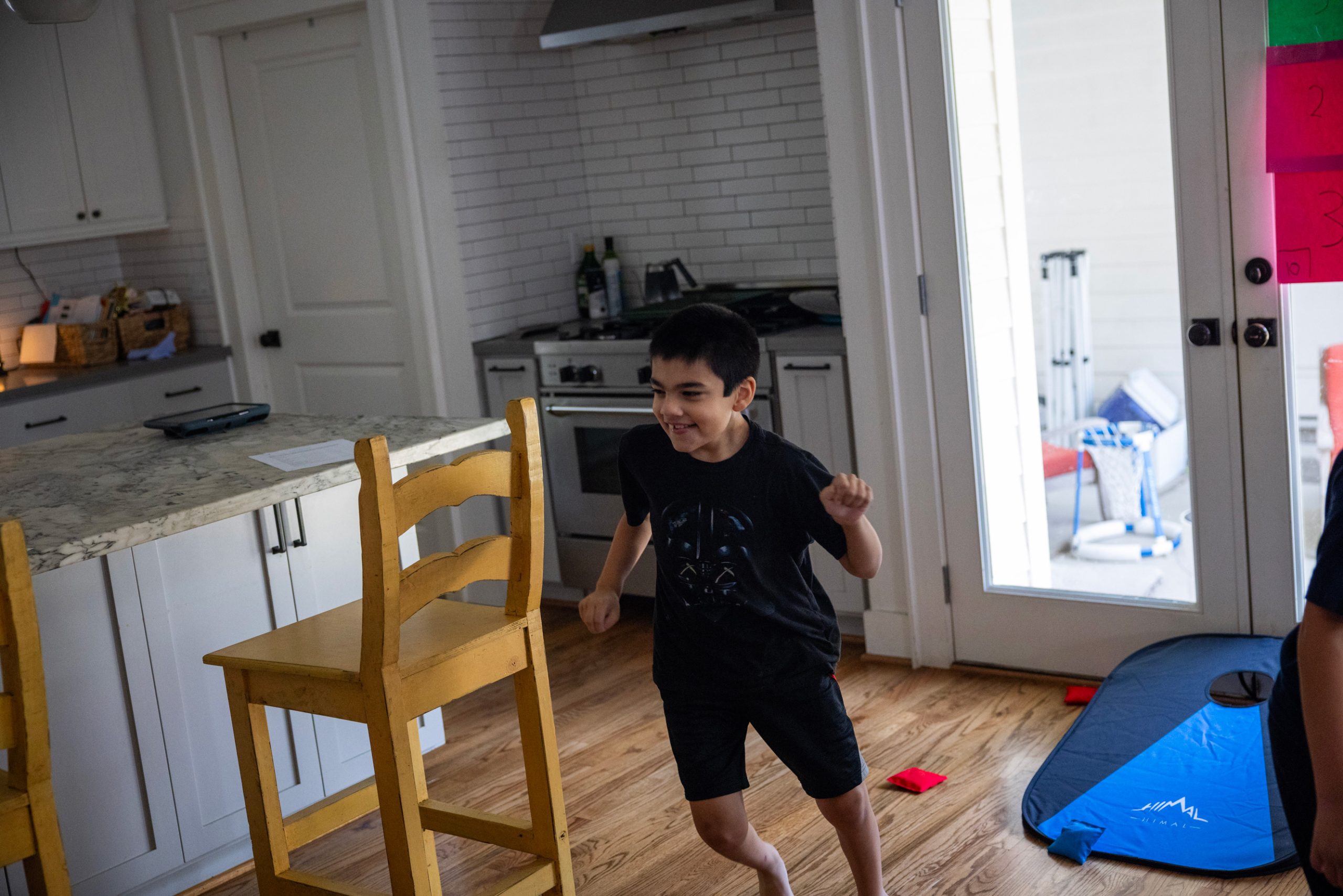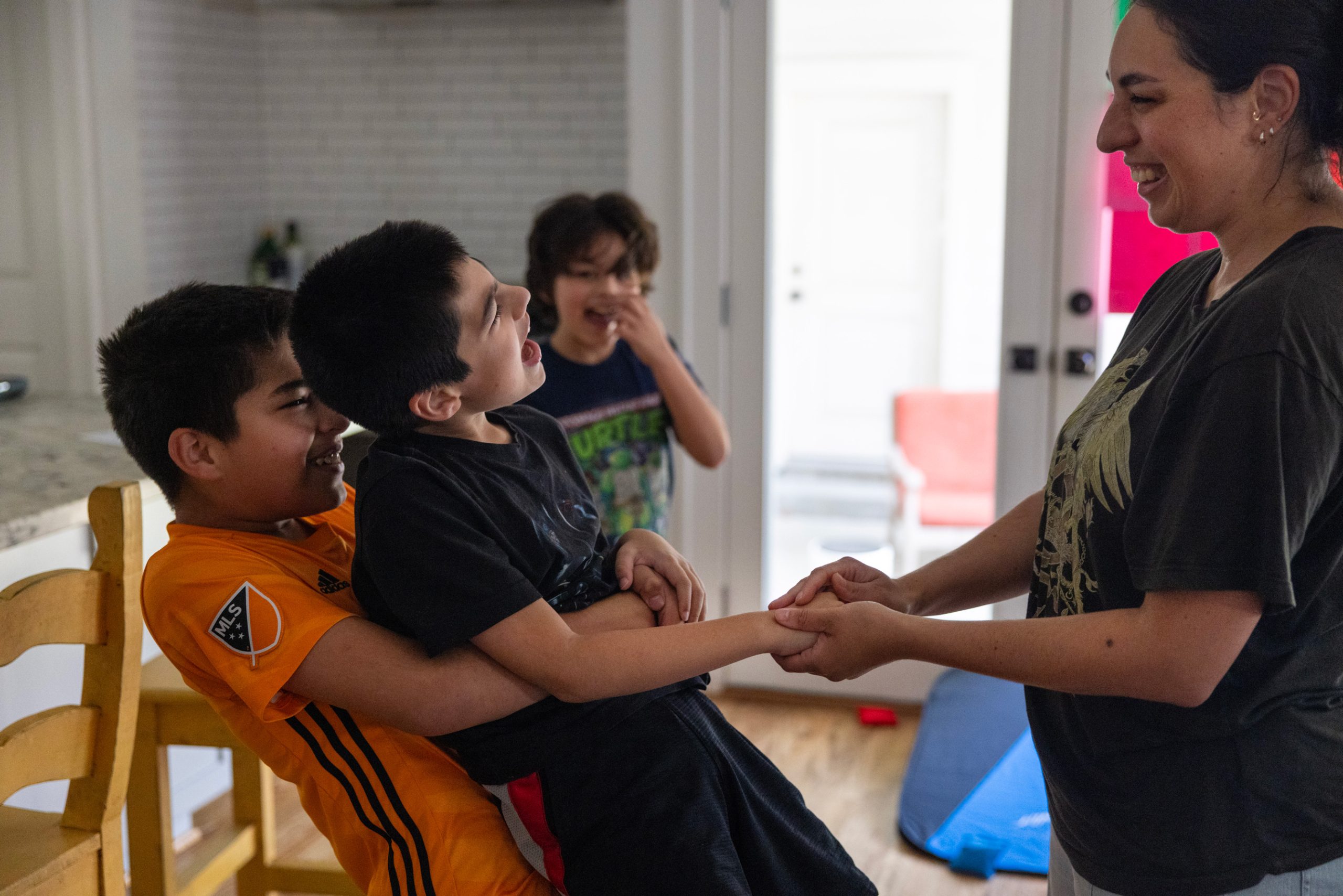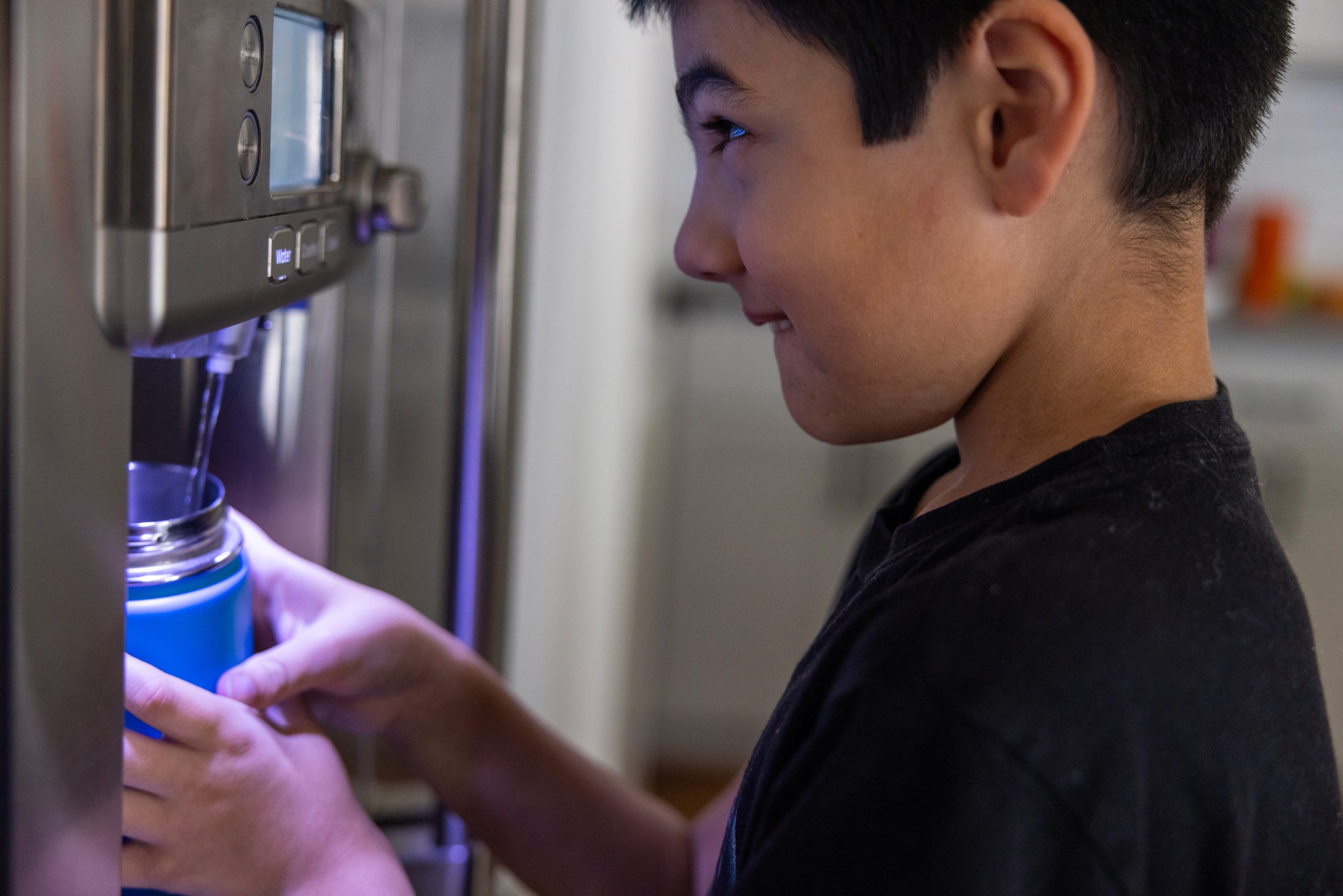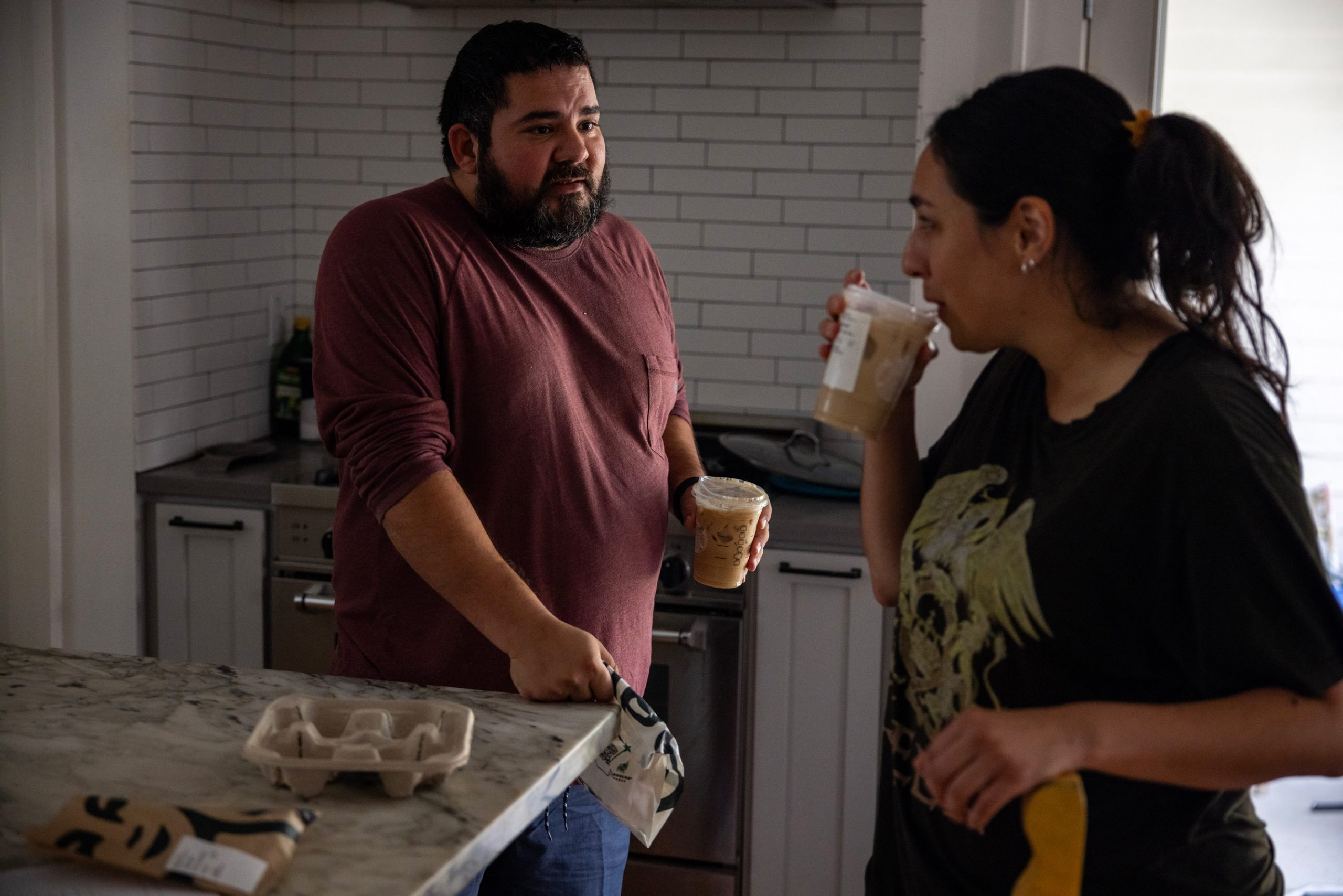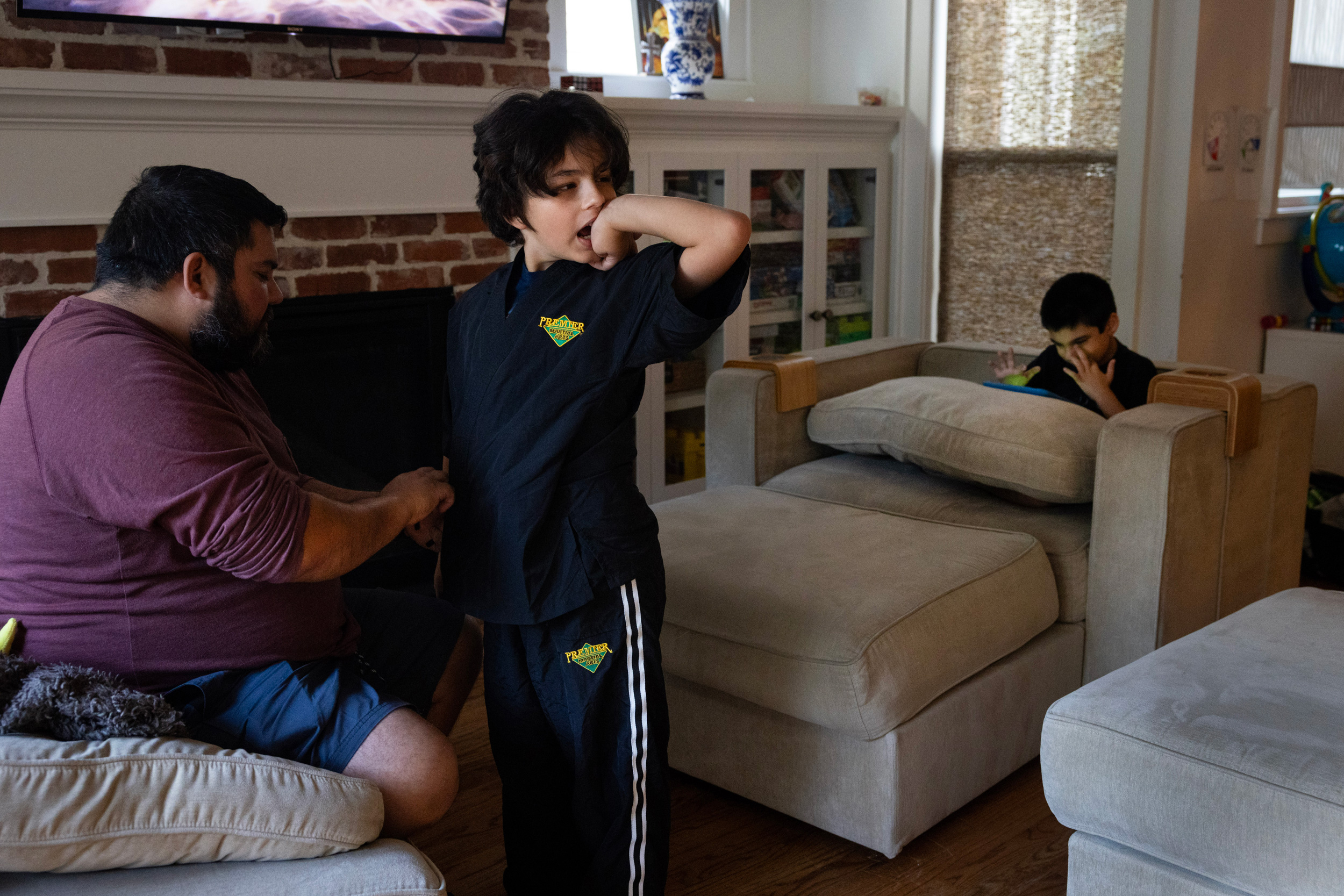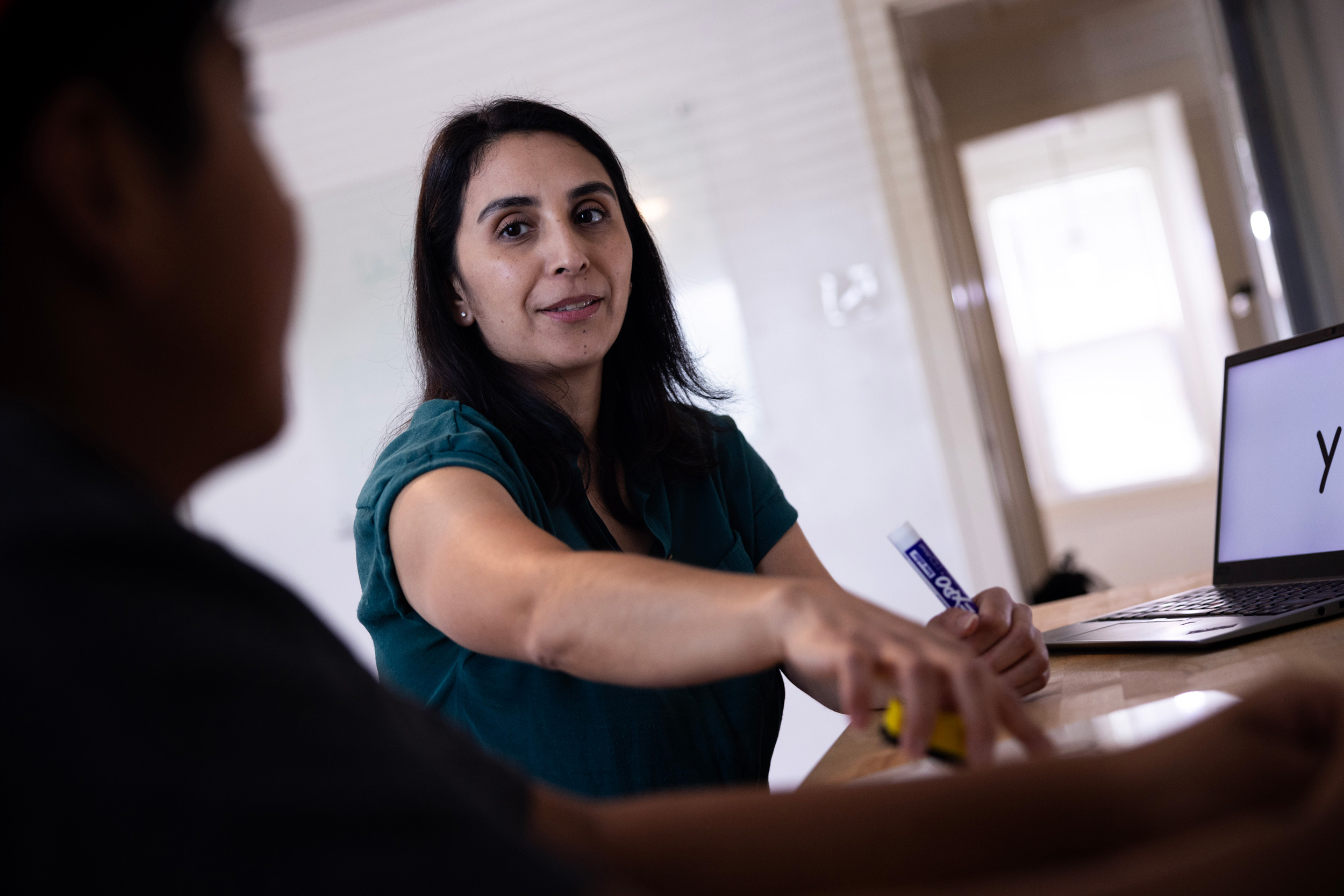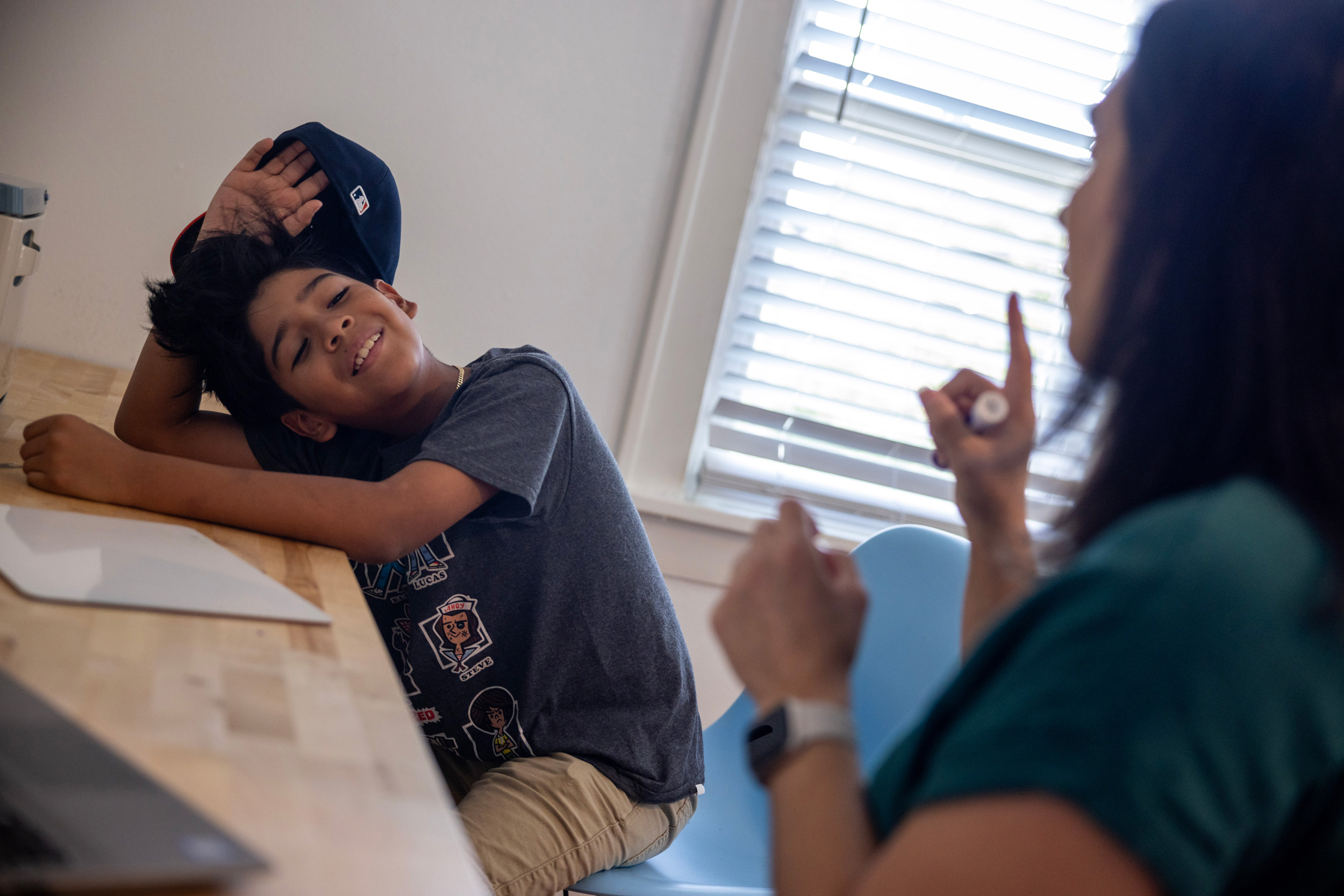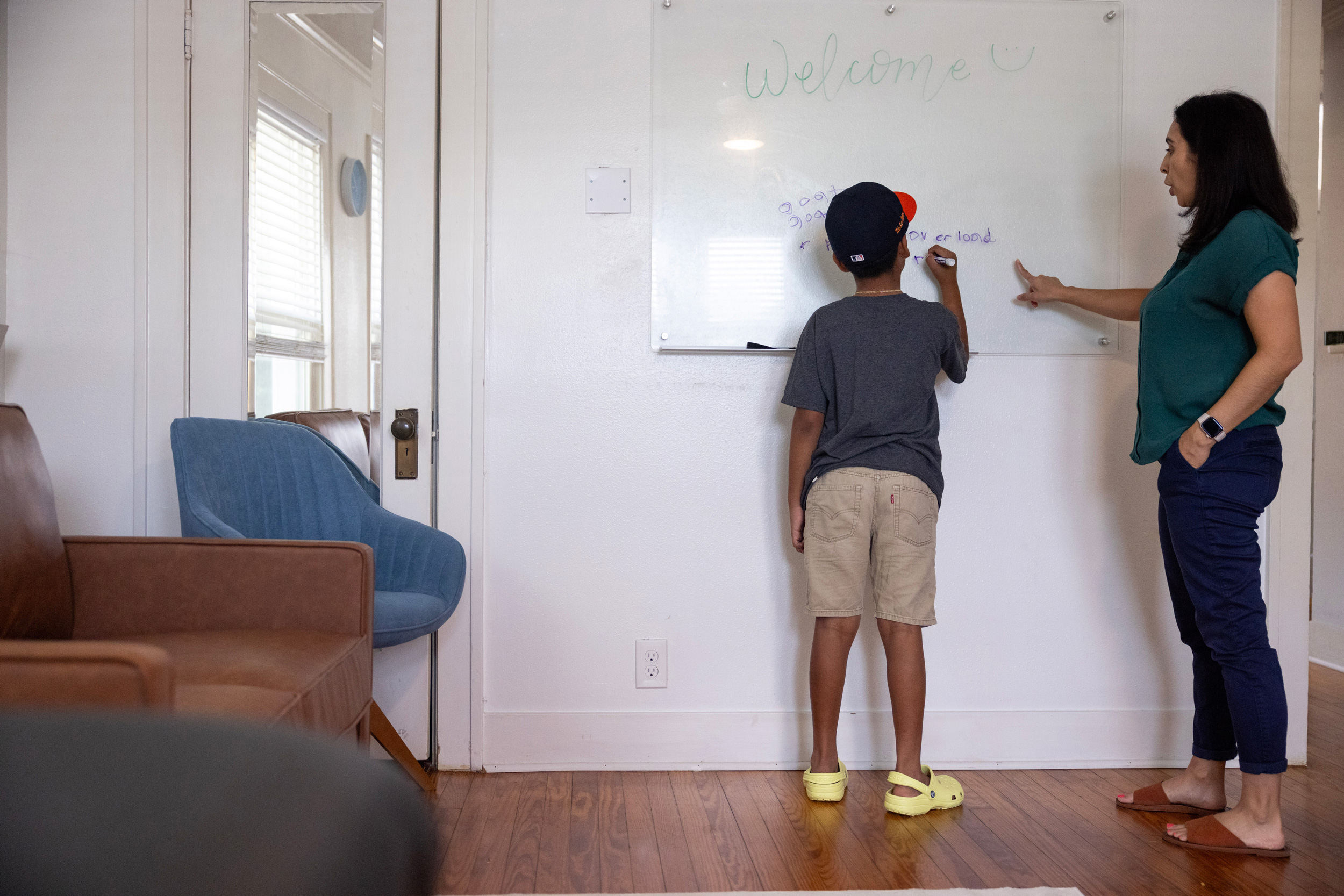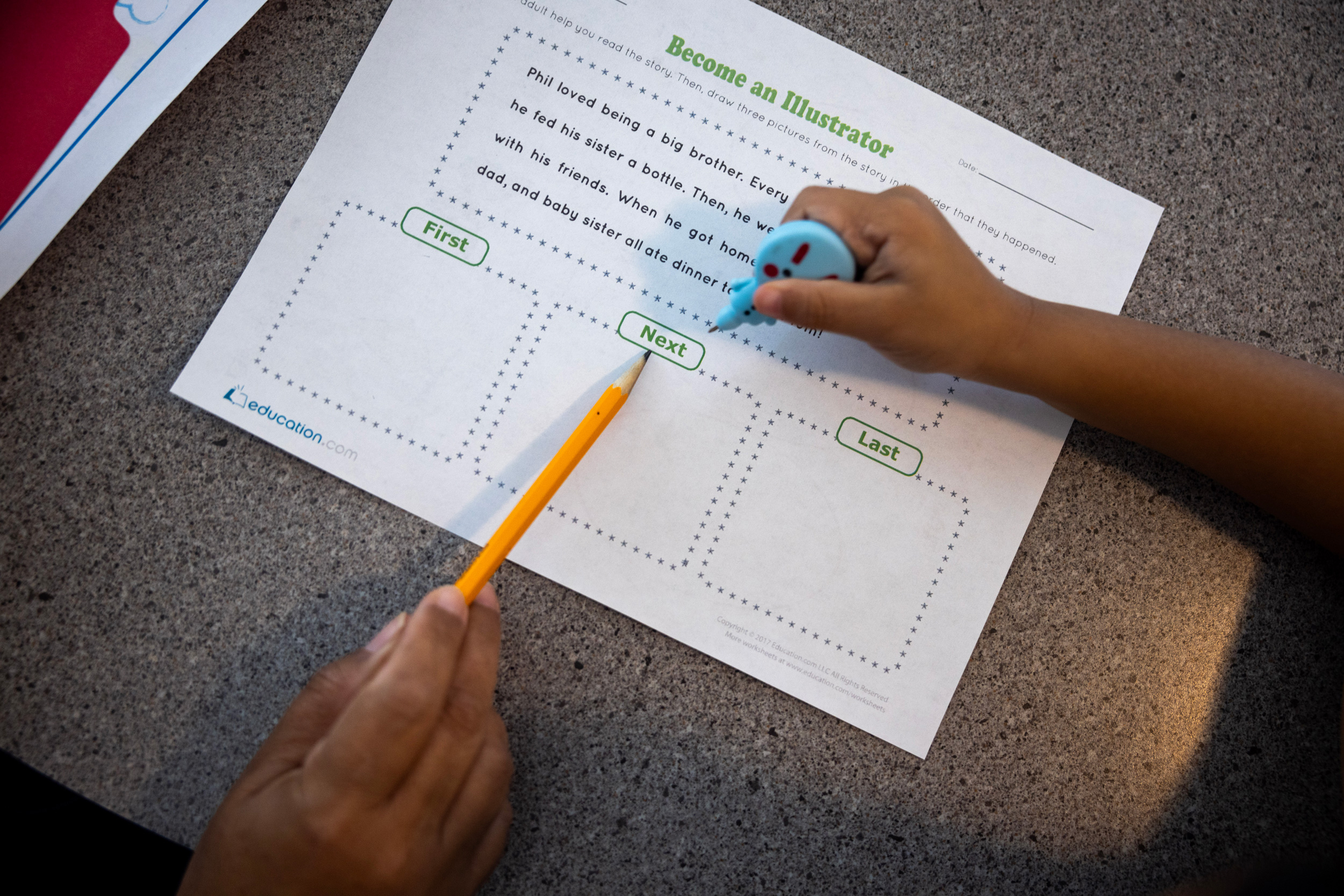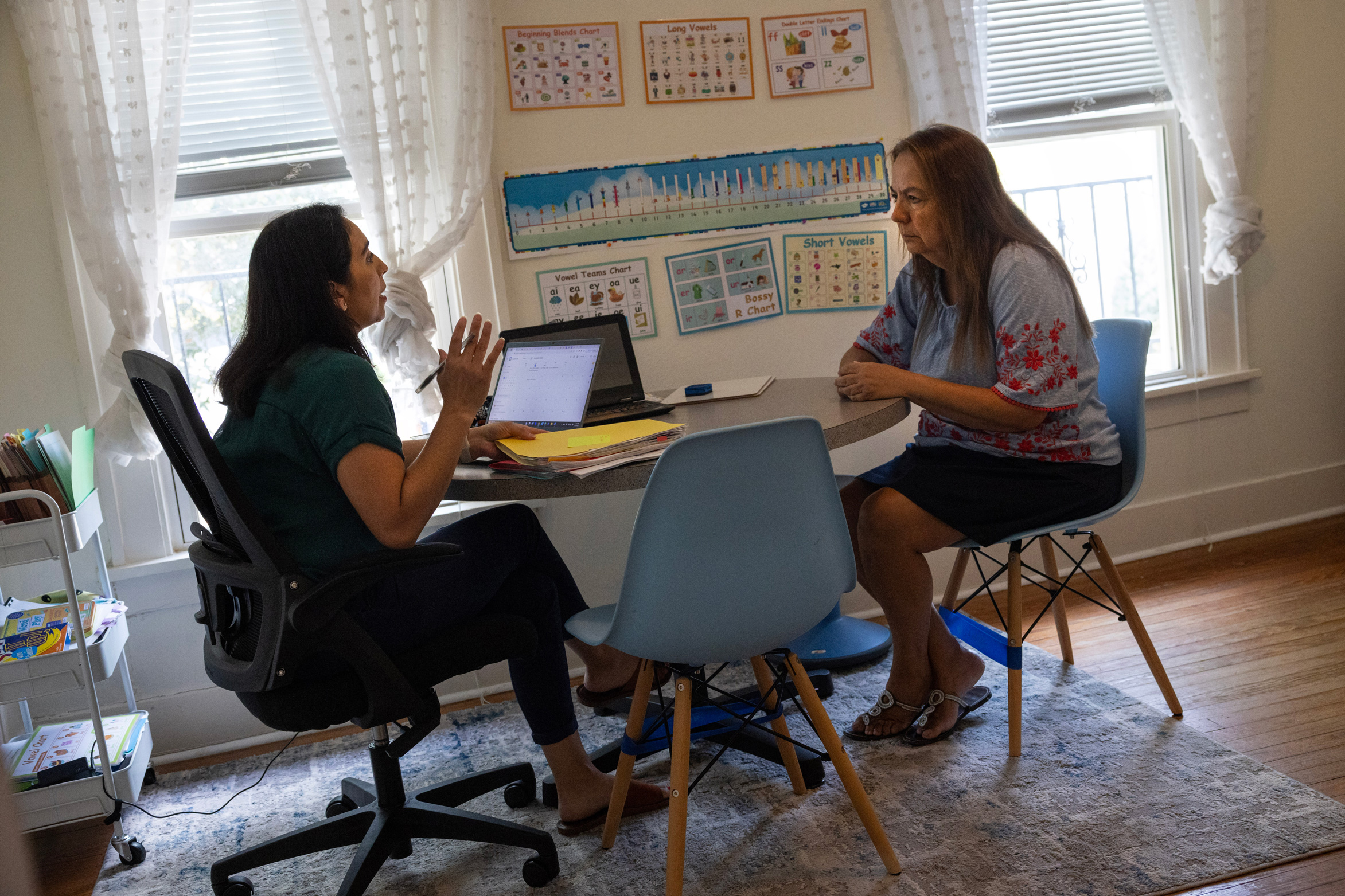|
Getting your Trinity Audio player ready...
|
The behavior calls started coming home when Naxhiely Ramón’s son was in kindergarten: He was disrupting the lessons, trying to run out of the classroom, and, on one occasion, tried kicking a teacher.
The Houston ISD mother knew the actions weren’t malicious, and a year later, she felt she was proven right. A psychiatrist diagnosed her son in 2019 with ADHD, depression and anxiety, conditions that sometimes caused him to act out.
But in the year before the diagnosis, Ramón said school administrators at the Arabic Immersion Magnet School dissuaded her from getting her child screened for a disability. Ramón also said campus leaders repeatedly asked her to pick up her son in the middle of the school day, a practice that circumvents state law banning suspensions for most early elementary students.
“I didn’t know my rights at the time,” she said. “I didn’t know the evaluation process for a kid like him.”
For years, HISD families have struggled with persistent dysfunction in the district’s special education department. Multiple outside reviews over the past 15 years, including a state investigation in 2020, have documented extensive issues with HISD’s process of identifying, testing and serving students with disabilities.
Now, parents like Ramón are anxiously following along as new HISD Superintendent Mike Miles outlines his plans for the state’s largest school district, awaiting word on how his strategy might improve a special education system they see as broken.
In his first two months on the job, Miles has unveiled broad strokes of a strategy for better serving students with disabilities: raising some special education teachers’ pay, adding more aides to classrooms, tying principal evaluations to special education-related results and putting central office administrators closer to classrooms.
“Special education teachers have too much to do,” Miles said. “We're not waving a wand and fixing special education, but we're going to move in the right direction.”
But with the first day of school less than a month away, some parents and advocates say they’re still in the dark on details — and worried about what little they have heard.
Angelica Medrano, who spent 12 years as a special education teacher and administrator in HISD and runs a business advocating for families, said none of her roughly 50 clients in the district have a clear picture of how Miles’ plans will affect their children. The same goes for teachers she knows in HISD.
“Everything that I've heard from other parents, and even teachers, (is) there really has been no communication about what the plan is with special education,” Medrano said.
Meanwhile, the district’s plan to send students who disrupt class or disrespect adults to learn virtually on laptops in a separate space, commonly known as “Zoom rooms,” has alarmed families. They argue the punitive approach to discipline is ableist and out-of-touch.
“There’s just no understanding of disability,” Ramón said.
HISD’s special education woes didn’t directly lead to the state’s appointment of Miles and ouster of the district’s elected school board in June. Rather, chronically poor academic performance at Wheatley High School, a state investigation into board members and the continued presence of a state-appointed conservator over long-struggling schools prompted the sanctions.
Still, Texas Education Commissioner Mike Morath has said HISD’s special education programs must be in compliance with state and federal law before the district can regain local control — one of three mandates for ending state intervention. In a draft plan for the school system, first obtained by Houston Public Media, Miles says the district will release an action plan for special education that includes key improvement targets by Sept. 1.
A history of violations
Several HISD superintendents have been befuddled in recent years by the district’s special education woes.
A 2011 report identified structural issues in the district’s special education programs, including many students’ needs going unmet and those identified for special education often being segregated from their general education peers. In 2018, the American Institutes of Research found many of the same issues persisted following a review of special education in HISD requested by school board members.
A 2020 investigation by the Texas Education Agency concluded the district had still failed to address the longstanding problems in special education delivery and found improper practices documented in students’ files. State investigators wrote that HISD had a “lack of serious initiative, rather yet success, in attempting to take corrective action to reform its systems.”
District leaders in some instances acknowledged their shortcomings serving students with disabilities, while in others pushed back against criticism. Former interim superintendent Grenita Lathan’s administration derided the state’s investigation as “factually and legally incorrect” and overly reliant on outdated information.
Throughout this stretch, however, HISD families have routinely railed against the district’s special education services.
Niki Prather, whose son is going into 10th grade at Westside High School, said she’s had to fight at every step of his education for services to which he’s legally entitled.
“It’s just been hell the last 12 years,” said Prather, whose son has autism. “Pure hell.”
Along the way, some HISD parents have called on the TEA to intervene — though they’ve also noted the agency’s failures on special education. A Houston Chronicle investigation in 2016 detailed how state officials worked to systematically deny special education services to tens of thousands of children. The Texas Education Agency subsequently needed six years to reach compliance with federal law addressing students with disabilities.
Some answers, many questions
For now, Miles’ special education plans largely focus on teacher pay and staffing.
Special education teachers at 28 lower- and middle-income schools will see raises bringing their salaries to $85,000 to $92,000. Most of those educators made about $60,000 to $70,000 last year.
In addition, Miles plans to add assistants to special education classrooms at those 28 campuses and another 57 schools that have opted into the superintendent’s plans for changes. The aides will help handle paperwork and oversee compliance with students’ learning plans, Miles has said.
Miles added that he’s also shuffling around central office positions and placing special education directors at regional offices, closer to the campuses they oversee.
“We are pushing the special ed services oversight … closer to the schools,” Miles said. “Supports will be able to focus on the schools in their feeder patterns.”
For some parents, however, communication with the community has been poor.
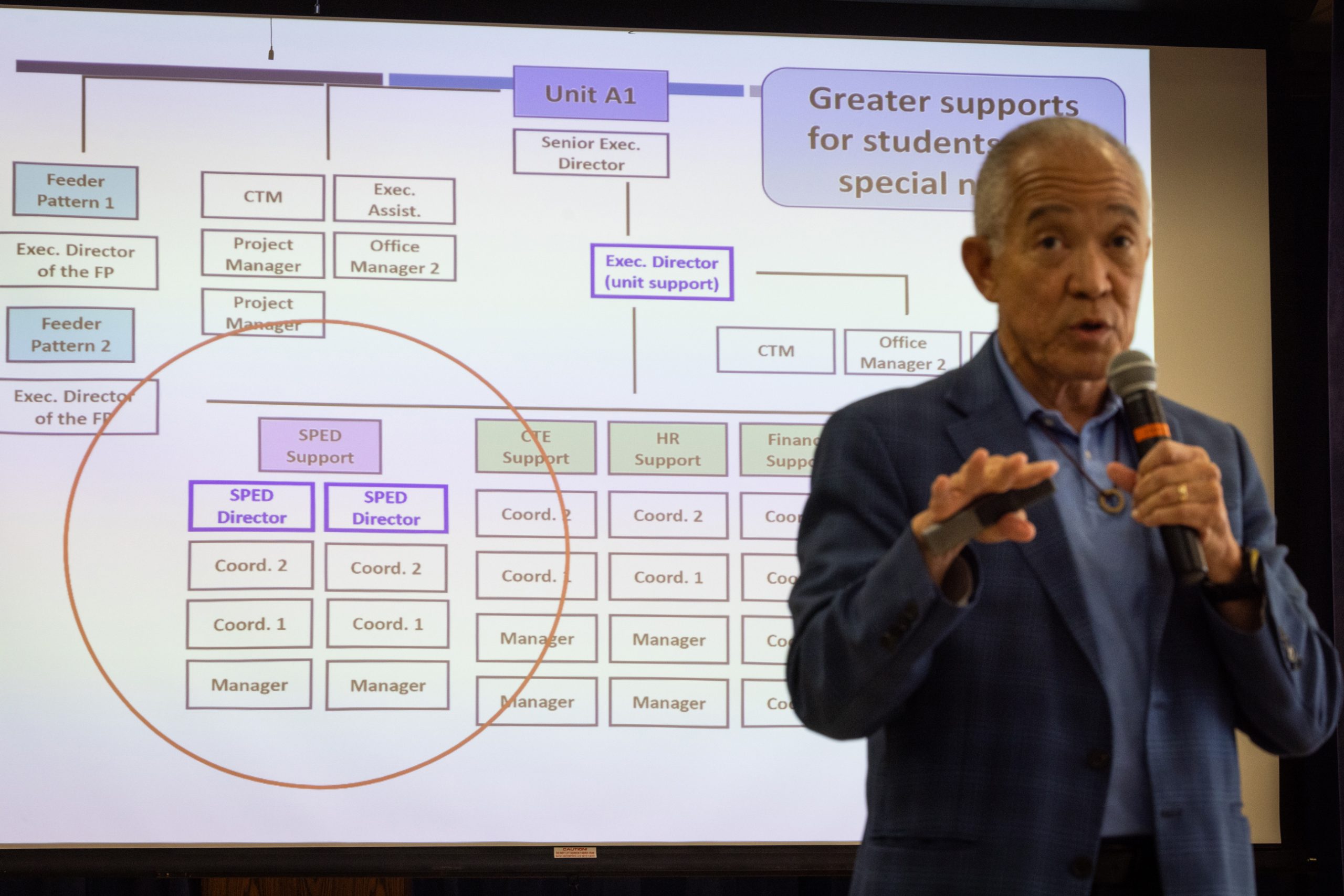
Miles typically devotes one PowerPoint slide to special education during his 10-stop “family events” tour of the district, which wraps up this week.
During a community meeting Saturday at West Briar Middle School, Prather asked Miles a question about special education programs at magnet schools. In what some parents say has become a familiar pattern, the inquiry “wasn’t answered, period,” Prather said.
Prather said she’s concerned none of the changes Miles has specified include additional training for educators on individualized education programs, or IEP, the legally mandated plan for every student in special education. In Prather’s experience, some HISD educators “don’t even know how to read an IEP,” she said.
To Ramón, the Arabic Immersion Magnet School parent, it’s exasperating to see Miles rolling out drastic changes without allowing families to give meaningful feedback.
“Historically, the district has made sweeping changes to (special education) without parental input and that's what's gotten them into hot water,” Ramón said. “And this seems to be happening again.”
Miles acknowledged that he has not yet met directly with special education families in HISD, but said he would be “happy to do that.”
Zoom room gloom
Miles already faces skepticism from some HISD families following the announcement of perhaps his best-known policy proposal: Zoom rooms.
While Miles has framed the strategy as a method for maintaining order in the classroom, several parents of children with disabilities said they’re wary of the discipline policy. They questioned whether educators overseeing Zoom rooms will carry out individualized education programs for their children, as required by law.
Roxana Cabrera’s son is going into fifth grade at Pugh Elementary School, one of the 28 campuses the superintendent is overhauling. He has ADHD and has trouble sitting still for long periods of time, so his learning plan allows him to take short breaks.
“I feel that my son will probably end up being punished in one of those rooms because he does get distracted a lot and he does lose focus,” she said.
Miles has said all students, including those sent out of the classroom for virtual learning, will receive the accommodations and services laid out in their learning plans. But that’s little solace to families whose children struggled in online classes during the pandemic.
Christina Quintero’s son, who is going into third grade at Port Houston Elementary School, was one of many students with disabilities across the country who did not receive legally-entitled services amid the pandemic, she said. His learning plan stipulated one-on-one help that he did not always receive.
“It wasn’t just two or three hours (that we were owed). We’re talking about 12 hours, 20 hours,” Quintero said. Forcing her son back into more online learning feels “dystopian,” she said.
For Ramón, many of the problems already arising could be solved by greater parent engagement.
“I really don't understand how you expect to make things better for families when you're not including them in the process,” she said.


